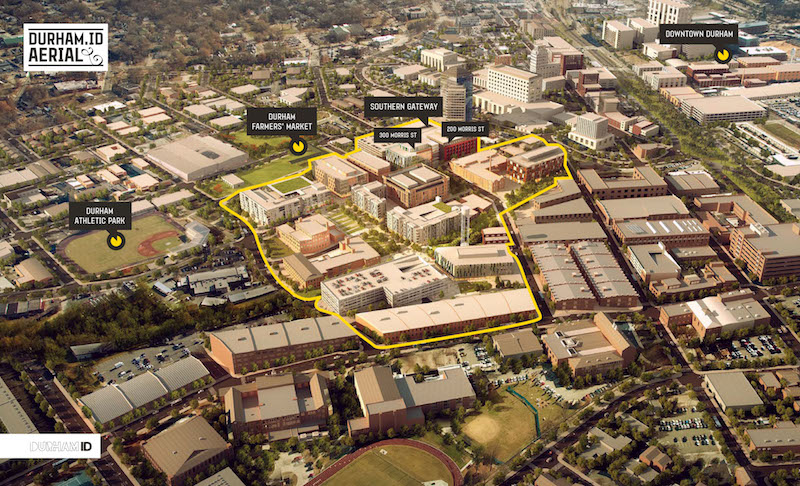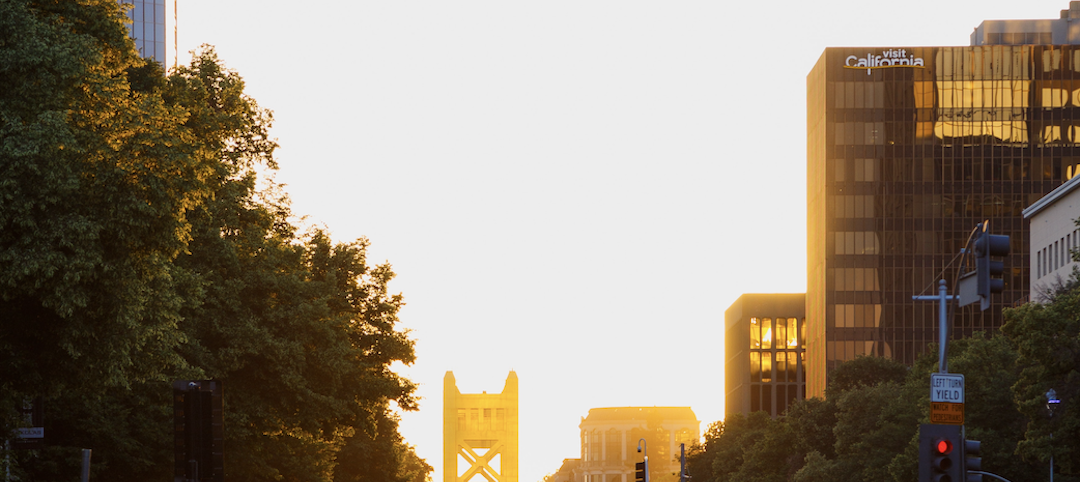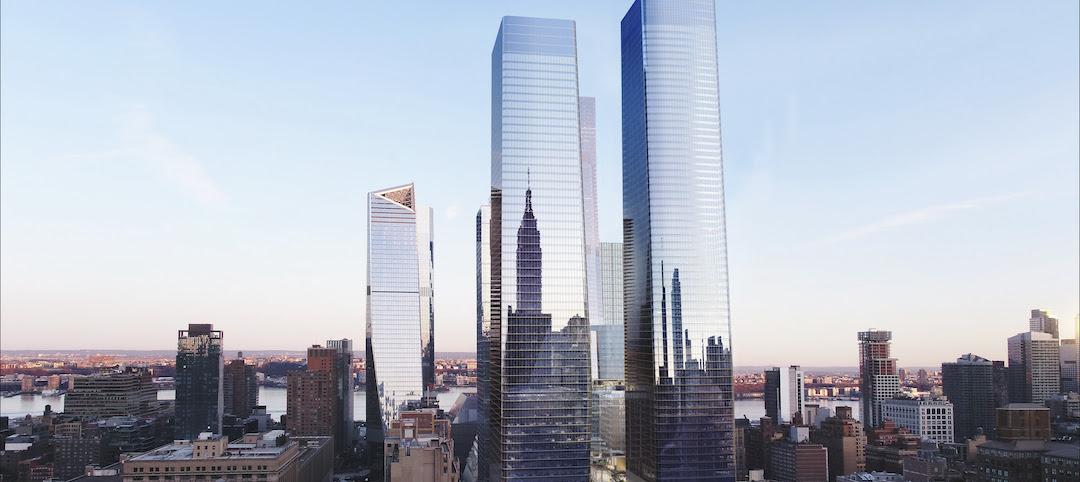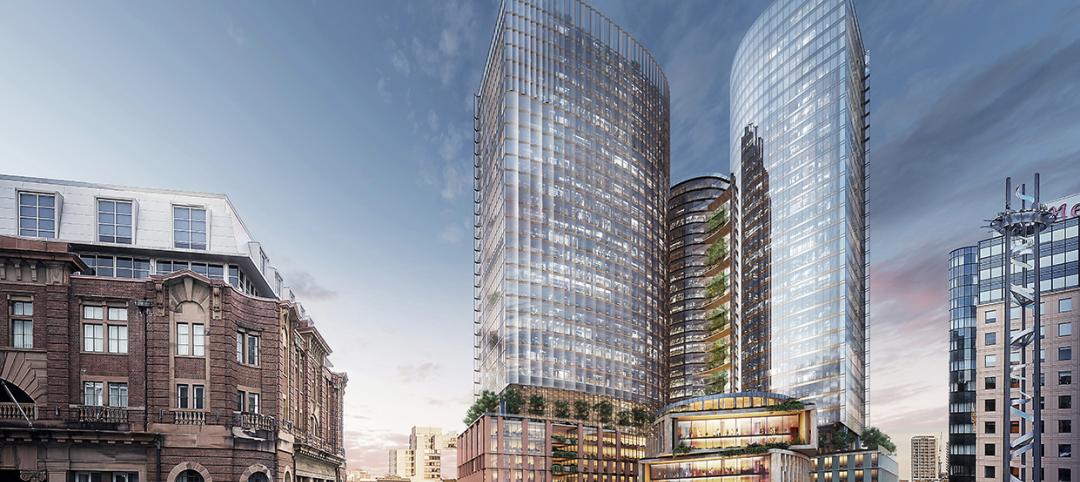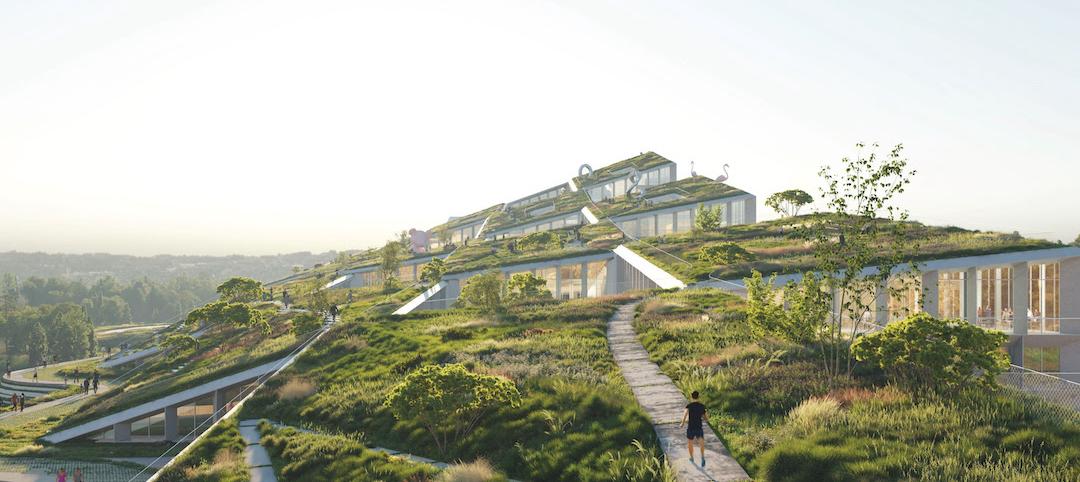The 15-acre Durham (N.C.) Innovation District, envisioned as a 1.7-million-sf mixed-use neighborhood within six blocks near that city’s downtown, is moving forward after opening two new office buildings with a total of 320,000 sf last December.
Stewart, which is providing landscape architecture, urban design, engineering, surveying and construction inspection and testing services for this project, is currently working with Greystar Real Estate Partners on a 300-unit, 250,000-sf residential building with ground-floor retail space, according to George Stanziale, Stewart’s president and director of design. Construction is expected to begin on this project in late third quarter of this year.
Boston-based Longfellow Real Estate Partners, the District’s owner and developer, is building a 175,000-sf full-service lab that should be completed in early 2020; and a parking garage that will be attached to an existing 1,200-car garage, says Jessica Brock, a Partner at Longfellow.
So far, Longfellow—which also owns an estimated two million sf of office space in Durham and Research Triangle Park—has invested in excess of $200 million in the buildout of the Durham Innovation District that is expected to take between five and seven years to complete. This redevelopment is being funded privately.
This is Longfellow’s first ground-up redevelopment. Brock says the city and county are investors in this public-private partnership, and the master plan took 2½ years to hammer out. While the District is heavily focused on R&D, “we also wanted it to be welcoming,” with wider streets, open and green spaces, and restaurants.
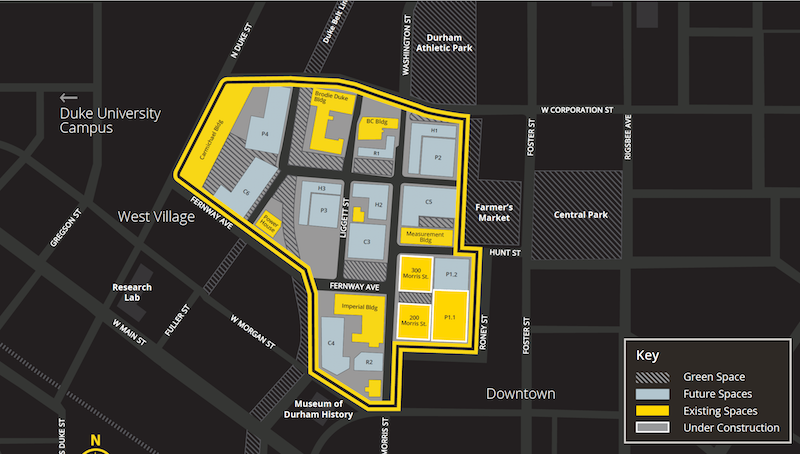
New lab space, a parking deck, and a 300-apartment building are in the works at the District. Image: Durham Innovation District, courtesy of Longfellow Real Estate Partners.
Durham has specific guidelines for its streetscape, but Longfellow wanted the District’s neighborhood to have a more contemporary look, which would have required an ordinance. Its designation as an official district of the city allows the District’s focus on innovation and creativity to be reflected in its design, including the incorporation of modern street furniture, from benches and tables to bike racks, tree grates, and trash receptacles.
Durham Innovation District, when completed, would include several parking lots and decks, and 10 buildings, including several existing buildings that already have been redeveloped and repurposed. Stanziale says that Hank Scherick, president of Measurement Incorporated—which develops, writes and grades standardized tests for schools—had been assembling downtown properties for years. Five years ago, Longfellow and Duke University (which already was a major presence in Durham) entered into discussions with Scherick about maximizing the potential of this site with a district that would focus on life sciences within a mixed-use context.
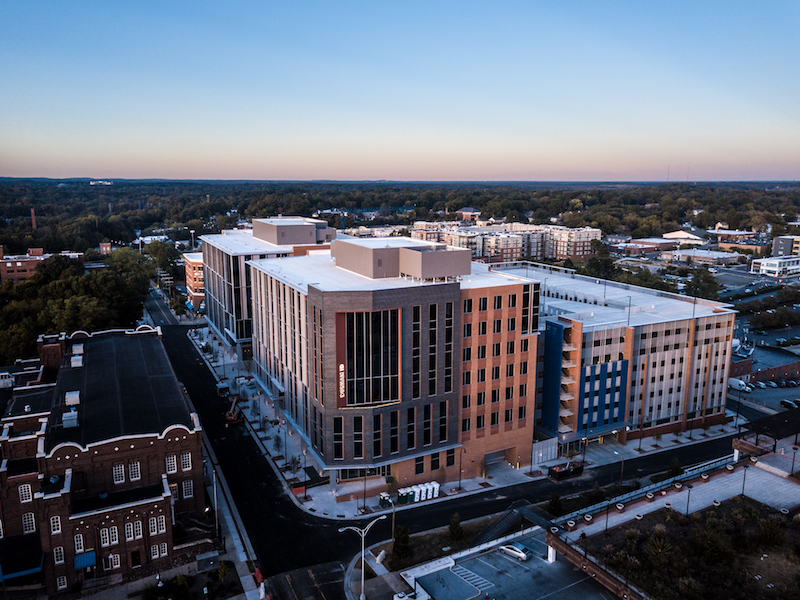 200 and 300 Morris Avenue, the addresses for two office buildings, each 160,000 sf, that opened in December within the District. Image: Durham Innovation District, courtesy of Longfellow Real Estate Partners
200 and 300 Morris Avenue, the addresses for two office buildings, each 160,000 sf, that opened in December within the District. Image: Durham Innovation District, courtesy of Longfellow Real Estate Partners
CBT Architects led the original master plan, and Longfellow brought in Stewart “to mold that plan,” says Stanziale. The site’s Carmichael Building, a former tobacco warehouse built in 1926, underwent a complete makeover to become a 115,000-sf office and lab space that’s leased mostly by Duke-affiliated institutes (such as the Duke Molecular Physiology Institute), and grant-supported programs.
Other buildings within the District have also been upgraded or redeveloped. They include The Measurement Building, whose five stories now feature 65,950 sf of Class A office space above 13,100 sf of street-level retail and 12,100-sf of below-grade parking. (Choate Construction was a contractor on this reconstruction.) The Brodie Duke Building, a former tobacco warehouse that dates back to 1878, offers 100,000 sf of space.
One of Brodie Duke’s tenants is Duda|Paine, which designed the District’s two new office buildings: 200 Morris Avenue and 300 Morris Avenue. (Barnhill Contracting was the GC on the new builds.) WeWork recently agreed to lease 80,000 sf on three floors in 300 Morris Avenue. Duke Clinical Research Institute leases all 160,000 sf of 200 Morris.
The old BC Building within the District has been redeveloped for 60,000 sf of new space. Another old warehouse, the Imperial Building, has been redeveloped for 125,000 sf of space whose tenants include the Duke Innovation and Entrepreneurial Initiative.
Related Stories
Mixed-Use | Nov 11, 2021
New mixed-use development breaks ground in Miami Beach
Domo Studio is designing the project and Origin Construction is the general contractor.
Mixed-Use | Oct 22, 2021
40 West 12th residential tower opens in Atlanta’s Midtown neighborhood
The project is part of the 1105 West Peachtree Development.
Multifamily Housing | Oct 20, 2021
Sacramento’s first luxury high-rise rental residences announced
Southern Land Company is developing the project.
Mixed-Use | Oct 19, 2021
Manhattan tower would be the first skyscraper built by a largely black development team in the city’s history
Adjaye Associates is designing the project.
Mixed-Use | Oct 11, 2021
Manhattan West opens the heart of New York City’s Far West Side
The project links several New York neighborhoods.
Mixed-Use | Oct 5, 2021
Ground-up mixed-use building completes near Wrigley Field
Hirsch/MPG Architecture + Planning designed the project.
Mixed-Use | Sep 30, 2021
The Laurel Rittenhouse Square is set to be Philadelphia’s tallest residential tower
Solomon Cordwell Buenz designed the project.
Glass and Glazing | Sep 30, 2021
Plans move forward on Central Place Sydney, duel towers with an AI-driven façade system
SOM and Fender Katsalidis are designing the project.
Mixed-Use | Sep 28, 2021
BIG designs new Farfetch HQ on the slopes of Leça River in Porto
The project is situated within the larger Fuse Valley site.
Mixed-Use | Aug 19, 2021
COVID-conscious, pandemic-ready skyscraper breaks ground in Miami
The project will be part of Miami Worldcenter.


